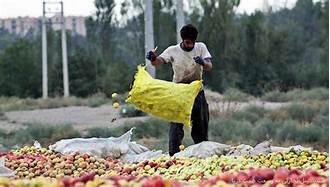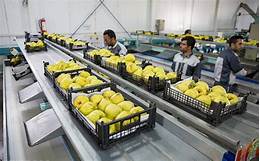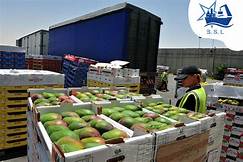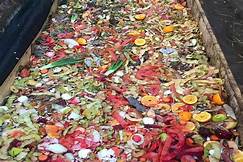Buy Food and agricultural waste In Parand
You can introduce your business services or products in this section.
For this purpose, be in touch with us.
Food and agricultural waste management is undertaken to recycling the wastes so as to reduce the ill effects of wastes on environment, health and aesthetics. The waste may be either in solid, liquid or gaseous form. The process of food and agricultural waste management varies for rural and urban areas, for municipal and industrial waste, for developed and developing nations. The management of municipal wastes is responsibility of local government while as the management of agricultural waste is the responsibility of farmers. The developed nations use various novel technologies to reduce the negative impacts of waste or use and effective management to exploit it.
Due to industrialization, urbanization and increase in population density, there has been an increase in the accumulation of waste. The waste include radioactive substance, agricultural wastes, food wastes, industrial wastes, municipal wastes. Garbage and paper waste etc. There has been decrease in the availability of open land and space for disposal of waste due to intensive use of agricultural land for residential, industrial and commercial purpose. In order to reduce the load of food and agricultural wastes on earth, the collection, transport, recycling and disposal of food and agricultural wastes needs to improvised.
The process of collection, transport, disposal, recycling and monitoring of food and agricultural wastes is called food and agricultural waste management. Food and agricultural waste management can be costly so it is important to understand the various effective, sustainable and safe means of its management. The three points ‘R s “Reduce, Reuse, and Recycle have become basic tenet in food and agricultural waste management due increase in generation of wastes, increasing in processing costs and decrease in available landfill space. There should be flexibility in food and agricultural waste management systems in light of changing environmental, social and economic conditions. To optimize, evaluate, adapt and define food and agricultural waste management systems, the information and feedback can be obtained from system analysis.
State and local authority must be contacted for necessary permits obtained before land application. Many permits require ongoing monitoring of groundwater and possibly soil and plant matter. Hydraulic loading is often ignored. If the site has a high water table or low permeability, the amount of water that can be applied generally is reduced. In some food processing waste, the level of salt is too high for land application. Most food processing waste land application sites should be designed by a professional who has experience in these type systems.
Food and agricultural waste of different consistencies requires different management techniques and handling equipment. Food and agricultural waste may be in the form of liquid, slurry, semisolid, or solid, waste, such as manure can change consistency throughout the system, all the year. The total solid concentration of manure is the main characteristic that indicates how the material can be handled.




